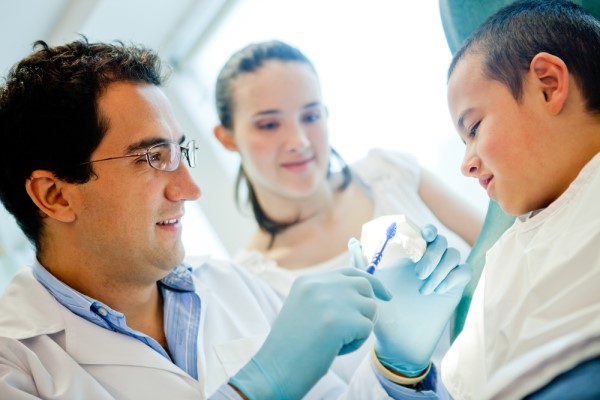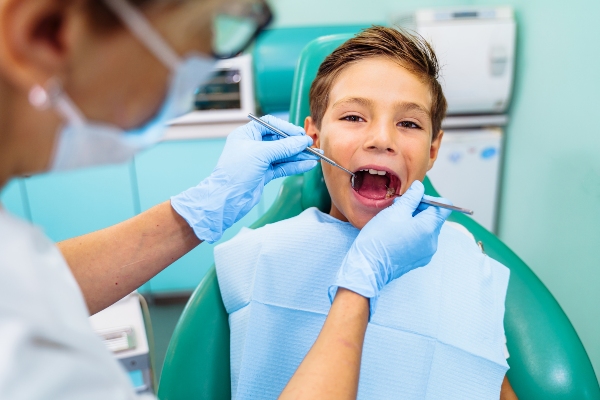A Pediatric Dentist Talks About Risks for Future Cavities in Kids

Regular dental care from a pediatric dentist is necessary so the dental professional can perform preventative treatment, cavity risk assessment, and oral examination. Dental decay can affect any child, and numerous factors might contribute to the occurrence of tooth decay. Unfortunately, tooth decay is one of the most prevalent pediatric illnesses, according to the CDC. This article covers the causes and risks of tooth decay and preventative steps that you may take.
The causes of cavities
Mutans streptococcus is a genus of bacteria that plays a vital part in the development of tooth decay. These bacteria eat sugar and make acid, which dissolves minerals in the enamel, the outermost covering of the tooth. The inner layer of the tooth, referred to as the dentin, will be damaged as decay progresses. Caries can damage the nerve and blood vessels of the tooth if it develops too far.
When it comes to tooth decay, the formation of white/chalky patches on the teeth is the first indicator that minerals are being lost, a process known as “demineralization.” As these regions deteriorate, a cavity may develop. These same bacteria are also responsible for dental plaque, a soft, sticky, yellowish film that forms on teeth and, if not removed regularly, can cause oral health issues, such as tooth decay and gum disease.
Minimizing the risk of cavities
Parents can take certain steps to help their children avoid or minimize future occurrences or the progression of dental cavities. Brushing in the morning and before sleeping eliminates plaque, which can function as a reservoir for germs and sugar. Flossing accomplishes the same goal and cleans hard-to-reach regions of the mouth. Parents need to begin dental cleanings when their child’s teeth first erupt.
Fluoride toothpaste and treatment help replace minerals that have been lost as a result of acid-producing bacteria. Fluoride on the teeth can help reduce the amount of acid produced. It also helps fortify the teeth against future cavities.
Parents also need to ensure that their children consume sugary or starchy meals less frequently. Bacteria can accumulate as people consume sugary and starchy foods during the day and in between meals. Note that the bacteria multiply, consume the sugar, and excrete acid as waste, which causes mineral loss on teeth surfaces, resulting in dental cavities.
Children should have a dental cleaning and examination every six months. Early preventative actions are critical in preventing the formation of decay. If decay is already evident, it is better to catch it early before it worsens and necessitates more comprehensive treatment. Since some children develop cavities much earlier than others, it is critical to schedule the child’s first dental visit before their first birthday. During this appointment, we can discuss prevention techniques, dietary suggestions, and other recommendations to ensure that they have protective measures in place to help prevent tooth decay.
The pediatric dentist may prescribe sealants for the chewing surfaces of the molars based on the child’s age and cavity susceptibility. A dental sealant is a plastic-like substance that covers the tooth and binds to it. It is applied to the chewing surfaces of molars, resulting in a smoother surface that is easier to clean with a toothbrush.
Final note
It is advisable to consult the pediatric dentist to ensure that your child has the necessary preventative measures to decrease the risk of dental caries developing in their teeth. Contact the dental office to book an appointment.
Request an appointment here: https://www.hvkidsmiles.com or call Hudson Valley Pediatric Dentistry at (845) 363-4177 for an appointment in our Middletown office.
Check out what others are saying about our dental services on Yelp: Pediatric Dentist in Middletown, NY.
Recent Posts
A child dentist can help your child achieve better dental and general health. Regular visits allow your child to get used to dental checks, tools, and equipment. Dental fear disappears, and the young patient can continue having a bright, painless smile. Here are what parents like you should look forward to during child dentist appointments.Choosing…
Cavity treatment for kids is essential for a child’s oral health. Dental decay can cause discomfort, causing the child to lose focus at school. It can even result in low self-esteem and malnutrition. Treating cavities can improve your child’s general health. Here are effective techniques for cavity treatment for kids.There are cases when fillings cannot…
Parents play a crucial role in their children's tooth care by ensuring their children get started on the right path to optimal dental health. This involves overseeing children's tooth care at home while also helping them develop healthy dental habits and ensuring they see a pediatric dentist regularly.Parents will need to keep their child's mouth…
Just like adults, children need preventive dental care — that is where pediatric dentistry comes in. Many parents believe that their child's teeth are healthy simply because their child is young. The truth is that oral health issues are as prevalent in kids as much as adults. Since they love sugary treats, the risk of…


